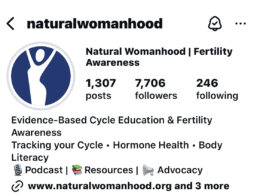Women’s health activist and biomedical scientist Obianuju “Uju” Ekeocha first made waves with her 2012 “An African Woman’s Open Letter to Melinda Gates.” As a Nigerian woman, Uju was growing increasingly concerned with the detrimental effects of Western-funded contraception campaigns in Africa, and wanted to alert the world to what she saw as a form of “ideological neo-colonialism” perpetrated by organizations like the Bill & Melinda Gates Foundation.
Unfortunately (but unsurprisingly) Bill and Melinda Gates never answered Uju’s letter, but that did not deter her from pressing onward with her cause. In fact, she took the Gates Foundation’s lack of response as confirmation that Western organizations aren’t interested in hearing the voices of African women, and that a “we know best” mentality ungirds the relentless push of contraceptives on women in developing countries around the world—whether they want them or not. Since then, Uju has gone on to found Culture of Life Africa, write a book, and produce a documentary, all in an effort to elevate the voices and needs of African women.
In an exclusive Natural Womanhood interview with Mary Rose Somarriba, Uju details for us how Mary Stopes International, the Planned Parenthood Federation, and other organizations funded largely by Western tax dollars infiltrate African communities and press contraceptives upon African women who are largely uninformed of their risks and side effects—only to quickly depart, leaving these women in danger and without access to care should they experience things like blood clots, heart attacks, strokes, and various cancers, or if they want to remove contraceptive devices like implants and IUDs.
We encourage you to watch the full video interview with Uju and Mary Rose below, to get a full picture of the shocking tactics and harms perpetrated against African women and families by Western-funded contraception campaigns, including:
- Bribery of community leaders to gain trust and access to women in rural African communities…
- Successful population control of Africans as seen by empty schools, as some communities cease having as many children…
- The lack of informed consent for African women being prescribed, injected, or implanted with contraceptive drugs and devices, without healthcare access or legal recourse when things go wrong…
With all of the other issues facing Africa, Uju makes the point that these contraceptive campaigns are like “seeing that your neighbors’ house is burning down, and showing up with a box of condoms.” She notes how offensive it is that instead of offering to help with other issues like poverty, hunger, and education, the West’s solution is that African people should simply stop having children.
Uju also points to the fact that while Western-funded contraception campaigns brag about providing “an unmet need” to African women, only 8% of African women say they do not currently use contraceptives because they don’t have access to them. So, for most African women, lack of contraceptive use is certainly not an “unmet need,” but a clear choice. As Uju points out, African women have other, much more pressing needs, and many of them actually have reservations about contraception, as indicated by low rates of uptake, and high rates of discontinuation of birth control methods among African women. Yet these Western-funded contraception campaigns keep coming back to African communities, year after year, and they don’t seem to care that African women, when surveyed, have very different goals for family structure and family life than Western women do.
We hope you’ll watch the interview with Uju to learn more about:
- The real unmet needs of African women,
- The heartbreaking effects Uju sees on African families and culture by the relentless push of contraception upon African women, and
- What kinds of campaigns are actually needed to improve the health of African girls and women.











